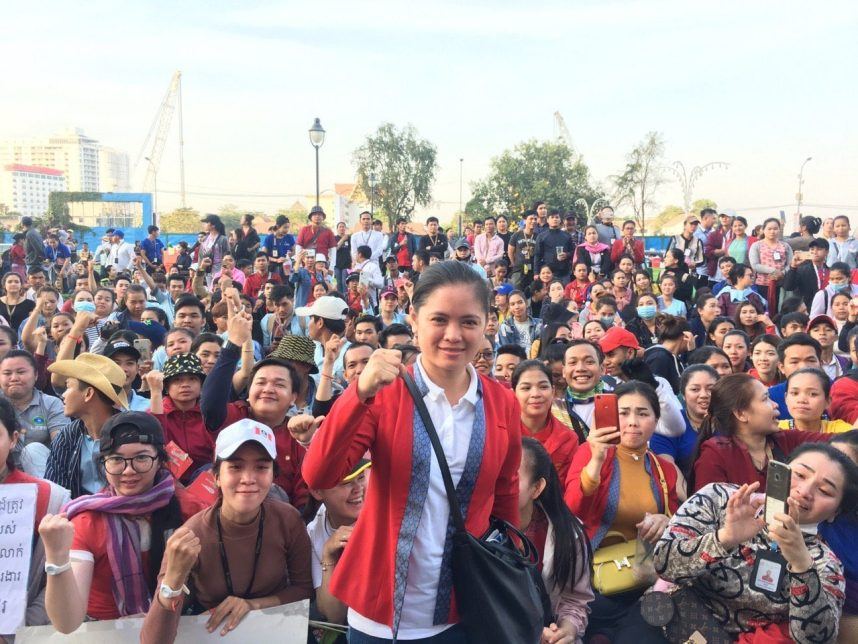Published on: September 18, 2024, 05:16h.
Last updated on: September 18, 2024, 05:16h.
A trade union leader from Cambodia, Chhim Sithar, has been released from prison after serving a 15-month sentence for organizing a strike at the NagaWorld casino resort in Phnom Pehn. Despite her release, she remains committed to her cause.

Chhim Sithar was detained in November 2022 upon her return from a labor conference in Australia. She was later sentenced to two years in prison for incitement to commit a felony.
As the president of the Labor Rights Supported Union of Khmer Employees of NagaWorld (LRSU), Sithar led a year-long protest demanding workers’ rights at Cambodia’s largest casino.
This strike became the longest in the country’s history and was forcefully disrupted by Cambodian authorities, leading to over 200 arrests in February 2022 alone.
“We will continue our fight for union rights at NagaWorld through strikes until we see a resolution. This has been our stance from the beginning,” Sithar stated in an interview with the Associated Press.
“Unfortunately, despite nearly three years passing, our workers have yet to receive justice. As long as there is no justice, our struggle will persist,” she emphasized.
‘Illegal’ Terminations
The strike at NagaWorld began in support of 373 colleagues who were laid off in April 2021. NagaCorp, the casino’s owner, attributed the layoffs to pandemic-related financial pressures.
However, workers alleged that the terminations were unlawful and refused inadequate severance packages. Many strikers were arrested under the pretext of violating COVID-19 protocols.
Sithar’s arrest was condemned by the US government, urging Cambodian authorities to respect the rights of union leaders to freedom of association and peaceful assembly.
The United Nations also criticized Cambodia’s government for suppressing the strike, calling on authorities to respect the right to peaceful assembly and engage in dialogue with the demonstrators.
Crackdown on Dissent
A recent report by Human Rights Watch highlighted Cambodia’s escalating crackdown on activists and critics in recent years.
[During the pandemic] the government enacted a state-of-emergency law granting extensive surveillance powers to the prime minister, restricting peaceful assembly and association,” the report stated.
Reflecting on her time in prison, Sithar expressed, “No one wishes to be imprisoned, but for me, the fear of losing our rights to unionize is more terrifying. The fear of losing the right to form a union outweighs the fear of imprisonment.”


